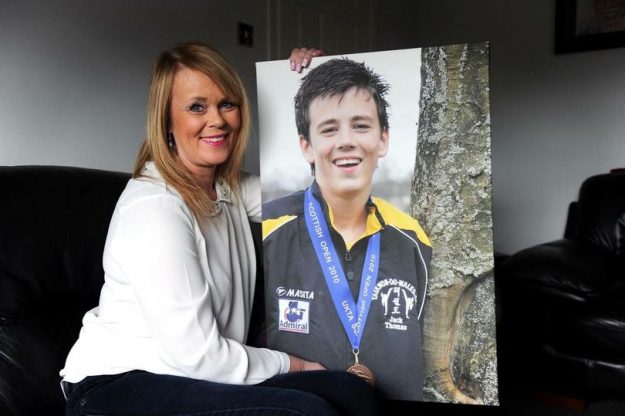Cardiac disease is the leading cause of death, affecting men, women, and children in Europe and the UK. How can we prevent this?

For June Thomas and her family, February 1, 2012, is a day they wish they could forget. The Six Nations Championship will never be the same for them again.
It was during Wales vs Scotland, when their son Jack Thomas, only 15 years old, died of an unexpected suspected arrhythmia while watching the match at a friend’s place.
“Jack was perfectly healthy. He was so fit, he played all types of sports; football, cricket, rugby, you name it.”
“Something like this happens to such a healthy boy, it really gets you thinking,” said June Thomas.
According to June, Jack felt perfectly fine on the day of his untimely death with no warning signs of a heart condition.
After Jack’s tragic death, June took it upon herself to create more awareness of cardiovascular health in kids and teenagers. June and her husband Grant have urged all the schools in Wales to install a defibrillator in their infirmaries, just so it is there to help others if they may need it one day.
“We don’t know if it would have helped Jack but we can only hope that this raises awareness and helps other kids who might need it,” said June in an interview.
June and Grant set up ‘Jack’s Appeal’ to provide automated external defibrillators to schools in Wales, and have helped install almost 80 of them in schools and other buildings.
Schools and other public buildings have pieces of equipment to prevent fires, earthquakes and other disasters but what gets widely ignored is emergency cardiac problems that someone might face.
They have also raised almost £80,000 for the cause through which they have installed more defibrillators in schools across Wales.
According to the World Health Organisation, CVD (cardiovascular disease) causes 46 times the number of deaths and 11 times the disease burden caused by AIDS, tuberculosis, and malaria, combined in Europe.
“I think what we really need to do is to get people of all age groups to really understand how grave the situation really is. It’s not just a smoker or an obese person who can be a victim of CVDs. It can happen to anyone.” said June.
By going for a heart screening once or twice a year, people are more aware of what is going on in their body, helping them to prepare for the likelihood of future disease.

“It is really hard to see little kids suffering from heart conditions when you go to hospitals and when something like this can be found out early enough to help these kids by getting a screening done, then why not do it?” said June.
June and Grant Thomas work closely with Cardiac Risk in the Young (CRY), helping young teenagers and people in their early twenties to get screened for cardiac diseases and issues.
“This screening programme comprises of a health questionnaire which enquires specifically about the cardinal symptoms of cardiac diseases such as chest pain, breathlessness, dizziness, palpitations or blackouts and also importantly enquires about family history of cardiac conditions, because most conditions that cause sudden death in young people are,” said Professor Sanjay Sharma who works with CRY.
How can we prevent this?
The notion of identifying hereditary conditions was further underlined by Dr Anindya Gupta, a consultant rheumatologist at Sherwood Forest Hospital.
“There are conditions that are acquired over the years by kids and teenagers but some of them are hereditary and that’s why family history is so important, and one must not panic if they don’t have a reason to,” he said.
“Cardiac diseases can be prevented very easily. One of the main causes of cardiac problems in kids, teenagers and young adults is obesity. Encouraging people to get more active is the first step towards better cardiac health,” said Dr Anindya Gupta.

“It’s really a pressing problem, the obesity. It’s only the tip of the iceberg and once it starts to unravel, it becomes a bigger problem.”
According to Dr Gupta, smoking, hypertension, high cholesterol and diabetes are also major risk factors for cardiac issues like getting a heart attack.
He also stressed upon the fact that getting an adequate amount of sleep and eating healthy and balanced meals will help to get your health back in track or even improving it further.
Knowledge and awareness about any disease can help save hundreds of people if not millions. Getting your heart checked can be daunting and can overwhelm a lot of people but knowing is better than being in the unknown.
Jack Thomas’ tragic story is just an example of how getting a routine check-up, or a cardiac screening might have helped him and that’s why awareness about prevention is so important.
